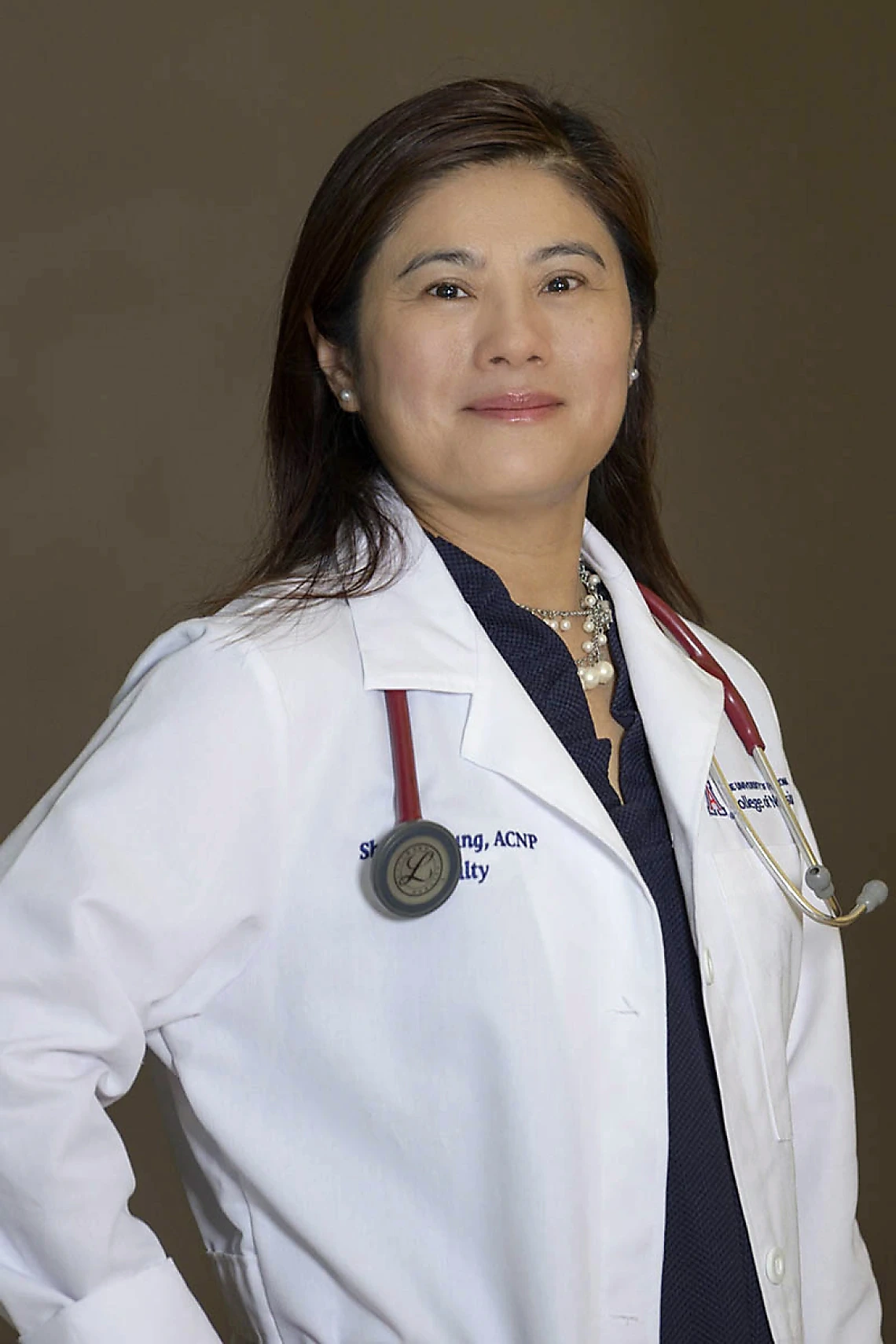Shu-Fen Wung, nursing science innovator, helps secure Big Idea Challenge award

When most people think of nurses, they often picture them providing hands-on care at the bedside — compassionate, knowledgeable, and essential to patient wellbeing. However, what many don’t realize is that nurses are also scientists, researchers, and system changemakers working behind the scenes to shape the future of health care. Shu-Fen Wung, PhD, MS, RN, ACNP-BC, FAAN, a professor at the College of Nursing, exemplifies this.
As a key team member behind the CoDiRA (Convergent Digital Health for Remote Access) project, Wung is helping to reimagine how and where health care can be delivered. Her team was recently named one of six awardees of the 2025 Big Idea Challenge, an ambitious initiative from the University of Arizona’s Office of Research and Partnerships (ORP) designed to support transdisciplinary research with real-world impact.
CoDiRA is a visionary collaboration that unites experts in emergency medicine, biomedical engineering, data science, biostatistics, and nursing. Its goal is to create an intelligent, culturally responsive digital health ecosystem that delivers care directly to communities, particularly those that are rural, underserved, or historically marginalized. By leveraging technologies such as AI-driven diagnostics, wearable sensors, extended reality (XR) tools, robotic-assisted care, and multilingual virtual assistants, CoDiRA aims to make health care continuous, preventive, and accessible in the environments where people live and work.
“This project aligns seamlessly with my research in digital health and our newly established Center for Health and Technology,” said Wung, who serves as the founding director of the Collaboratory for Nursing and Health (CHaT). “It is a true honor to be part of this interdisciplinary group and to have been selected as one of the Big Idea Challenge awardees. We aim to realize the promise of accessible health care in the environments where people live and work.”
The CoDiRA project represents a new model of collaborative research and innovation that transcends traditional academic boundaries, uniting the strengths of various disciplines. Nurses like Wung provide an essential, people-centered perspective in a field that can often focus too much on technical innovation, neglecting the complexities of human care.
"Dr. Wung’s work on the CoDiRA project is a powerful example of how nurse scientists are leading the charge in health care innovation,” said Brian Ahn, PhD, Dean of the College of Nursing. “Her leadership ensures that cutting-edge technology remains grounded in compassion, equity, and real-world impact. This recognition by the Big Idea Challenge not only honors her vision but also affirms the essential role of nursing in shaping the future of health care."
This type of partnership is not only beneficial, it is essential. Health care innovation cannot succeed without understanding the real-life contexts in which patients live and providers operate. Nursing provides that context. Engineering offers a scalable design. Data science delivers precision and prediction. Together, they create solutions that are not just visionary but also usable, inclusive, and sustainable.
“CoDiRA embodies a significant innovation, tackling the ongoing challenges of implementing and scaling digital health solutions in real-world contexts,” Wung said. “The cross-disciplinary nature of this team is what gives us the ability to think bigger and build smarter. I want to express my gratitude for Dr. Adhikari’s leadership in assembling such an exceptional team.”
Selected from a pool of 72 proposals across 19 academic units, the CoDiRA team stood out not only for its technical ingenuity but also for its commitment to equity and access. The project was one of 14 finalists who presented their ideas at a pitch-style event judged by leaders from sectors including bioscience, defense, venture capital, and higher education.
“This recognition highlights the strength of our transdisciplinary team and the deep collaborative spirit across colleges,” said Srikar Adhikari, MD, professor, Emergency Medicine, and the project’s Principal Investigator. “Winning this award allows us to take a major step forward in improving health care access for underserved populations.”
Wung’s role in CoDiRA highlights a growing yet still underappreciated truth: nurses are vital to health care innovation. With their broad perspective on patient care, systems, education, and outcomes, nurses are uniquely positioned to drive research that is both clinically effective and socially responsive.
Her leadership ensures that the technology being developed is grounded in real-world care delivery, increasing its chances of success in actual practice, not just in theory.
As CoDiRA continues to evolve, it will serve as a model for how convergent research and cross-disciplinary collaboration can address some of the most pressing global health challenges. And through it all, nursing remains at the center, not merely as a supporting player, but as a driving force for innovation, equity, and improving patient outcomes.
Read about all 2025 Big Idea Challenge winners.

